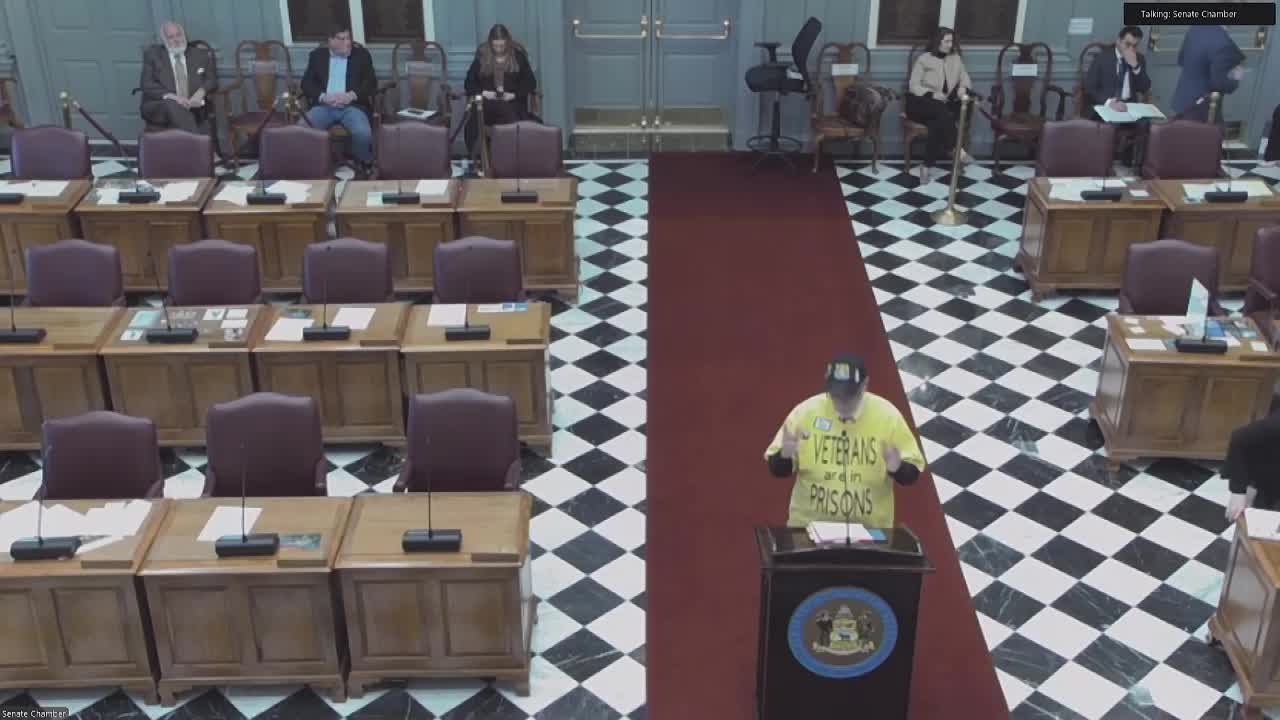Senate resolution orders study and pilots for energy storage; SEU and utilities to test projects including Milford
Get AI-powered insights, summaries, and transcripts
Subscribe
Summary
Senator Stephanie Hansen, chair of the Senate Environment, Energy and Transportation Committee, sponsored Senate Joint Resolution 3, with Representative Burns, directing the Sustainable Energy Utility to study energy storage and run pilot projects with utilities to assess grid and ratepayer impacts.
Senator Stephanie Hansen, chair of the Senate Environment, Energy and Transportation Committee, sponsored Senate Joint Resolution 3, with Representative Burns, asking the Sustainable Energy Utility (SEU) to study energy storage and run pilot projects with the state’s utilities. Hansen told the committee the resolution grew from stakeholder discussions and is intended to assess costs, locations and benefits of storage technologies for grid stabilization and to capture renewable generation.
Hansen said the SEU would report back at multiple times, with an initial status report due at the end of 2025 and subsequent reports after pilot completion. "Let's take a look at it. Let's study it. Let's see what works, what doesn't work," Hansen said during her presentation.
Matt Hartigan, executive director of the Public Service Commission, told the committee that any utility cost‑recovery for pilot projects should be net of revenues the utility obtains from PJM or other sources to avoid double recovery. "Any cost recovery should be net of any revenue they get from PJM or any other source," Hartigan said, and that the Commission or the SEU study could address revenue recovery rules.
Committee members pressed on cost and who ultimately pays. Senator Eric Buxton asked whether cost recovery means higher rates for ratepayers; Hartigan confirmed ratepayer funding could be involved. Several senators described the field as rapidly evolving and noted utilities may need to change compensation models if they are to manage distributed storage and virtual power plants.
Jamie Nutter, representing Delaware Electric Cooperative and the law firm Parkowski, Yerken & Swayze, described a storage project tied to DEC’s Bruce Henry solar farm near Georgetown. Nutter said the planned project — originally supported by a federal grant that is now on hold — is a 2 megawatt, 4 megawatt‑hour storage system under consideration for expansion with SEU support. He said SEU funding could allow DEC to increase the size of the storage installation and open up local distribution capacity that currently limits additional residential solar in that area.
Hansen and witnesses referenced a letter from the City of Milford and Delmarva Power analysis that identified an estimated shortfall of about $2,000,000 needed to make a Milford battery project feasible after increased tariffs on battery units. Hansen said the SEU planned to work with Delmarva, the cooperative and the city to support pilot projects; she told the committee the $2,000,000 figure represented a shortfall, not the total project cost.
Jamie Nutter said DEC expects storage could reduce demand costs in the Georgetown area by about $500,000 a year and improve grid resiliency by shortening outage durations during storms.
Public commenters were split. Diane Cherry of the Mid‑Atlantic Renewable Energy Coalition (MERIT) urged inclusion of independent power producers alongside utilities in the pilot program and said the region has near‑term storage projects ready to deploy. Jamie Nutter (on behalf of DEC) and others said the funding from the SEU, including RGGI dollars, would help bridge grant shortfalls from federal programs and make pilot projects feasible. Joe Walls, CEO of Veterans Services, opposed taxpayer subsidies for for‑profit firms and argued public money should prioritize cooperatives or household systems.
No committee vote to adopt the resolution or to authorize specific funding was recorded in the transcript. Senators and witnesses agreed the measure is intended to create a formal study and a laboratory of several pilot projects in different utility management models — investor‑owned, cooperative and municipal — with SEU assistance and periodic reporting back to the General Assembly.
If adopted later, the resolution would charge the SEU with producing a preliminary report by the end of 2025 and subsequent reports after the pilot projects reach completion, so the General Assembly can evaluate the costs, benefits, and potential compensation models for utilities deploying storage.
